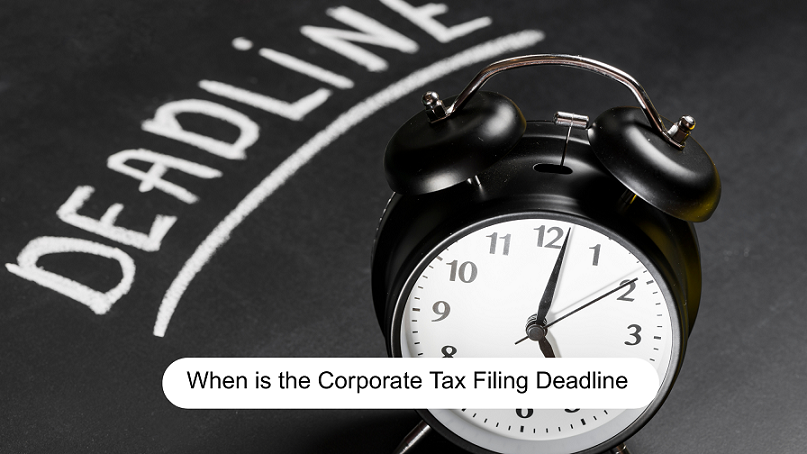
If you're running a business, you’ll need to file and pay Corporation Tax each year. But you need to know when is the corporate tax filing deadline? This is something every business owner should know, whether you’re running a small start-up, a growing limited company, or an established business.
The corporate tax filing deadline is 12 months after the end of your company’s accounting period, and keeping track of this date can save you from late filing penalties and stress.
For many small businesses and new companies, these deadlines can be confusing at first. In this blog, we’ll explain the dates you need to remember and the steps to file your return.
Corporate tax filings refer to submitting your company’s financial information to HMRC. This helps HMRC calculate how much Corporation Tax your business owes.
This is done through the Company Tax Return (CT600), which must be submitted along with your annual accounts. Even if your business made no profit, a tax return is still required.
Things to know about corporate tax filings:
The corporate tax return deadline falls 12 months after the end of your company’s accounting period. For example, if your company’s financial year ends on 31 March 2025, your corporation tax return must be filed by 31 March 2026. It’s important to file on time to avoid penalties.
Important reminders:
This is why many ask when is the corporate tax filing deadline at the end of each financial year to avoid costly mistakes.
The corporation tax payment deadline is usually 9 months and 1 day after your accounting period ends. Using the same example:
If your accounting period ends on 31 March 2025, you must pay your tax by 1 January 2026.
|
Task |
Deadline |
|
Pay Corporation Tax |
9 months and 1 day after year-end |
|
File Corporation Tax Return (CT600) |
12 months after year-end |
This difference causes confusion, which is why it is important to know when is the corporate tax filing deadline is and the separate payment date.
Paying your Corporation Tax is a separate process from filing your Company Tax Return. Once you know how much you owe, you must make the payment to HMRC by the corporation tax payment deadline (usually 9 months and 1 day after your accounting period ends).
Here is the correct way to pay:
1. Log in to HMRC
2. Check Your Corporation Tax Reference Number
3. Choose Your Payment Method
HMRC accepts several secure payment options:
4. Confirm Your Accounting Period
5. Keep Proof of Payment
Missing the corporation tax deadline can result in HMRC fines. The longer the delay, the higher the penalty.
|
Delay |
Penalty |
|
1 day late |
£100 fine |
|
3 months late |
An additional £100 fine |
|
6-12 months late |
HMRC may estimate your tax and add a percentage charge |
Late payment also triggers interest charges on the unpaid tax. Therefore, knowing tax return dates and setting reminders is essential for all companies.
Proper organisation helps avoid last-minute stress. Businesses often benefit from accounting support to keep records up to date.
Helpful steps:
Knowing when is the corporate tax filing deadline is just one part of keeping your business in good standing.
Understanding when the corporate tax filing deadline is helps your business avoid penalties and manage finances smoothly. Remember that the filing deadline and payment deadline are different, so it’s important to plan ahead.
Staying organised throughout the year makes the process much easier. If you ever feel unsure, seeking support from a professional accountant can save time, money, and stress.
If you are unsure about when is the corporate tax filing deadline for your business, or you want to avoid penalties and unnecessary stress, PHS Associates is here to help.
Our team of experienced accountants will handle your corporation tax return accurately, ensure all allowable expenses and reliefs are claimed, and guide you on the correct corporation tax payment deadline.
Contact us today at 0208 8611685 or email info@phs-uk.co.uk for expert support with your corporation tax and other accounting needs.